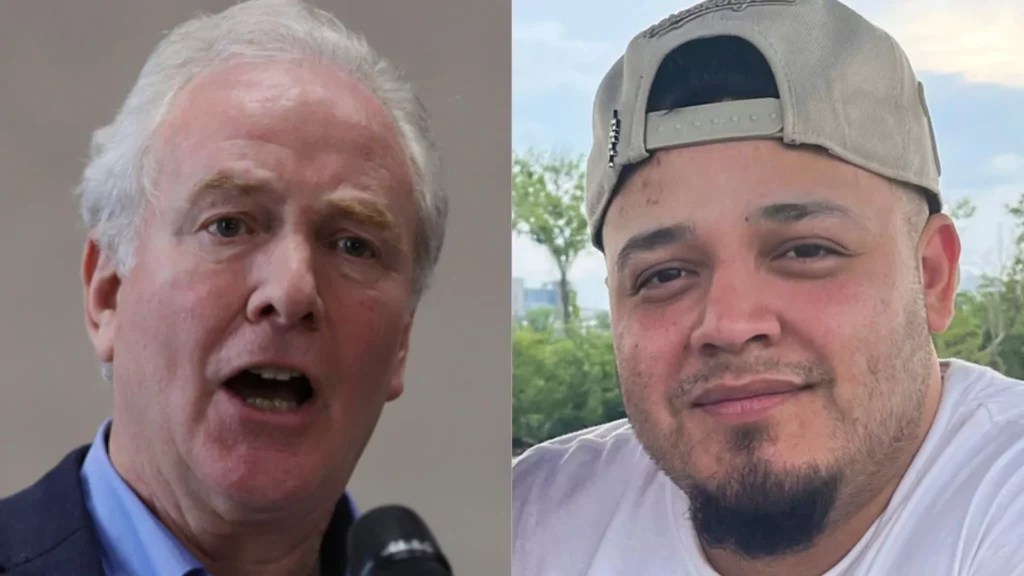Blinken starts Beijing meetings to ease tensions with CCP.
U.S. Secretary of State Antony Blinken on Sunday kicked off two days of high-stakes diplomatic talks in Beijing after months of urging by the Biden administration for the Chinese Communist Party (CCP) to reestablish normal bilateral communications.
Blinken opened his program by meeting Chinese Foreign Minister Qin Gang for an extended discussion to be followed by a working dinner. He’ll have additional talks with Qin, as well as China’s top diplomat Wang Yi and possibly Chinese leader Xi Jinping, on Monday.
Neither Blinken nor Qin made any substantive comments to reporters as they began the meeting at the Diaoyutai State Guesthouse.
Despite Blinken’s presence in the Chinese capital, prospects for any significant breakthroughs are slim, as already strained ties have grown increasingly fraught in recent years.
U.S. Secretary of State Antony Blinken arrives in Beijing on June 18, 2023. (Leah Millis/Pool/AFP via Getty Images)
Blinken is the highest-level American official to set foot in China since President Joe Biden took office in 2021, and the first secretary of state to visit since 2018, when his predecessor Mike Pompeo visited China for one day.
Blinken’s arrival kickstarts two days of meetings with senior Chinese officials for talks on managing U.S.-China tensions. In a statement on June 14, the State Department said Blinken “will discuss the importance of maintaining open lines of communication to responsibly manage the U.S.-PRC relationship.”
“He will also raise bilateral issues of concern, global and regional matters, and potential cooperation on shared transnational challenges.”
Blinken’s trip was previously scheduled in February but it was postponed after Washington shot down a Chinese surveillance balloon flying over U.S. airspace on Feb. 4. Since then, high level communications have been rare.
China has refused regular military communications despite repeated attempts by U.S. officials to engage.
Biden before boarding Air Force One at Joint Base Andrews in Maryland on Saturday morning told reporters that he believes “China has some legitimate difficulties unrelated to the United States.”
“One of the things that that balloon caused was, not so much that it got shot down, but I don’t think the [Chinese] leadership knew where it was and knew what was in it and knew what was going on,” the president said.
“I think it was more embarrassing than it was intentional,” he added, possibly pointing to ongoing disunity within the CCP’s ranks between long-waring factions of the party.
“And so, I’m hoping that, over the next several months, I’ll be meeting with Xi again and talking about legitimate differences we have but also how there’s areas we can get along.”
Over June 18–19, Blinken is expected to meet with Chinese Foreign Minister Qin Gang, China’s top diplomat Wang Yi, and possibly Chinese leader Xi Jinping, U.S. officials said.
U.S. Secretary of State Antony Blinken (R) is welcomed by Director General of the Department of North American and Oceanian Affairs of the Foreign Ministry Yang Tao and U.S. Ambassador to China Nicholas Burns (L) as he arrives in Beijing on June 18, 2023. (Leah Millis/Pool/AFP via Getty Images)
3 Main Objectives
Speaking at a news conference on Friday before departing for Beijing, Blinken said the trip had three main objectives: Setting up mechanisms for crisis management, advancing U.S. and allies’ interests and speaking directly about related concerns, and exploring areas of potential cooperation.
“If we want to make sure, as we do, that the competition that we have with China doesn’t veer into conflict. The place you start is with communicating,” Blinken said. He said he would also be raising the issue of U.S. citizens detained in China on charges Washington sees as politically motivated.
Prospects for any major breakthroughs are dim as ties between the two countries have already become increasingly strained in recent years over a wide range of issues as the CCP more overtly pursues its socialist world view.
But there is an expectation that Blinken’s visit will pave the way for more bilateral meetings in coming months, including possible trips by U.S. Treasury Secretary Janet Yellen and Commerce Secretary Gina Raimondo. It could also set the stage for meetings between Xi and Biden at multilateral summits later in the year.
Concerns mount that the United States and China’s relations may devolve into a kinetic war.
Any escalation between the two largest economies in the world could majorly impact global security and stability on multiple fronts, from financial markets, to trade routes and practices, and global supply chains.
CCP has been preparing its military and population for conflict. Twice in the past month, Xi has warned the Chinese people that they must prepare for “extreme scenarios.” Likewise, the regime is attempting to build up its domestic industrial and economic base in order to ensure continued operation in the event of war.
Read More
- China Adjusts Martial Law Rules in Preparation For War: Experts
- Large-Scale Protests in Wuhan Pose Unprecedented Threat to the CCP
Amid social instability at home, Xi has ordered the regime’s military wing to be ready to conquer Taiwan by 2027, although it’s unclear if the regime has committed
" Conservative News Daily does not always share or support the views and opinions expressed here; they are just those of the writer."





Now loading...